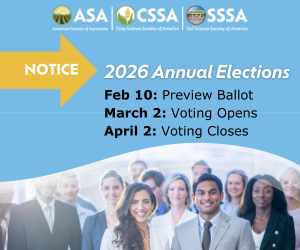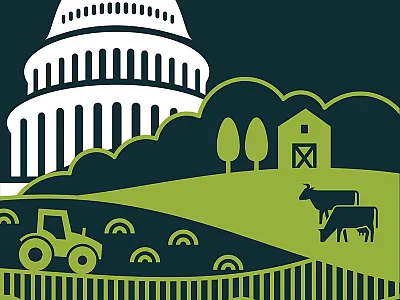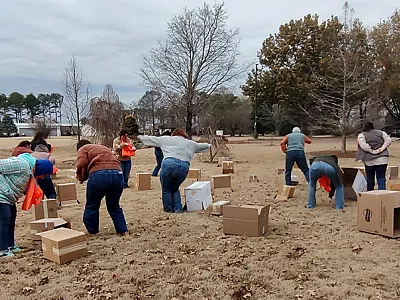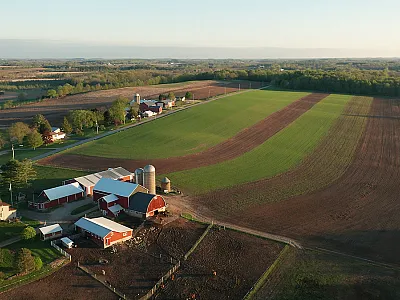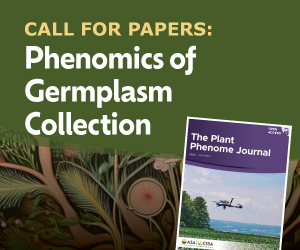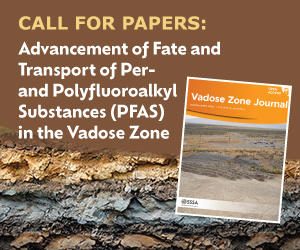Training the Next Generation of Peer Reviewers
Mentorship Program Ensures Quality Publishing, Fosters Professional Relationships, and Helps Bolster Careers

During the week of September 25–29, those of us in the scholarly publishing world celebrate Peer Review Week. We take this time to celebrate the essential role peer review plays in maintaining research relevance, accuracy, and timeliness. Quality peer review is critical to our journal‐ and book‐publishing program, and we rely on our many peer review volunteers to ensure our content is the best it can be.
Identifying qualified and willing peer reviewers is a constant challenge for all scientific publications. This has grown more difficult as competing journals vie for researchers’ time. Researchers must be convinced that peer review is a worthwhile endeavor that helps science, aids fellow researchers, and can boost CVs and, subsequently, careers.
Our Peer Review Mentorship Program is one tool that helps us rise to this challenge. The program is modeled after similar programs introduced by other scientific/professional societies (ASCO, APA, EMEUNET, SfN, and GSA). Twice each year, we select a group of early career members to be paired with an experienced Society mentor in their field of study. During the course, mentees receive training on peer review with the goal of conducting a mentored review for an ASA, CSSA, and SSSA journal article. At the end of the program, successful mentees receive credit for mentored reviews through their Web of Science profile, will be enrolled as peer reviewers for ASA, CSSA, and SSSA journals relevant to their expertise, will be recognized at the Societies’ Annual Meeting, and will receive a certificate of completion. In addition, graduates may receive special consideration for future early career board positions.
To elevate recognition of our most active and valuable reviewers, we established the Peer Review Advisory Committee in 2022 (see box). The primary goal of this new committee is to continually engage our reviewers in our review process and to encourage them to remain active peer reviewers for our journals in the future. We would like to acknowledge and thank our current committee members for their commitment to helping us make our peer review process the best it can be.
| Magdi Abdelhamid | Mingxin Guo | Matthew D. Ruark |
| Suborna Ahmed | Stephen A. Harrison | Gustavo A. Slafer |
| Lawrence Aula | Zachery Hayden | Humira Sonah |
| Lucas Borras | Philip Osei Hinson | Matthew Daniel Stocker |
| Joan Campbell | Jessica Holmes | Andrew C. Vanderzaag |
| Edwin Cey | David Horvath | Serena Varotto |
| Khim Chim Bee | Leonard M. Lauriault | Olga S. Walsh |
| Jared Levi Crain | Patricia A. Lazicki | Sky A. Wills |
| Aaron L.M. Daigh | Shuyu Liu | Jinliang Yang |
| Stephen J. Del Grosso | Robert Malone | Melinda Yerka |
| Alan J. Franzluebbers | DeAnn Ricks Presley | Dan Zhou |
| Javier M. Gonzalez | Zane Michael Raudenbush |
We hope that this new program and the support we provide will incentivize early career members to get involved in the peer review process and establish a pathway to stay involved with our Society journals. Finally, we hope that this program will foster valuable professional relationships between our experienced and early career members and will be viewed as an added benefit of Society membership.
How Does Our Peer Review Mentorship Program Work?
We currently offer 12 mentee spots per year. This is split into two cohorts of mentees. This first cohort began in January and the second in July. The program is free of charge, but mentees are required to be ASA, CSSA, and/or SSSA members at the time of application. Ideal candidates are early career professionals (graduate students or post‐docs) with little to no prior peer‐reviewing experience. Some experience with academic publishing from an author’s perspective is helpful.
What can you expect?
- Apply to be a mentee. Candidates are asked to submit a CV, cover letter, and optional letter of recommendation.
- Successful mentees are paired with an experienced mentor based on compatible research areas.
- Each mentee follows a curriculum consisting of preparation work followed by five sessions.
- During the sessions, mentees will be given practice papers to review using guidance and tips provided by the mentor. Mentees and mentors meet to discuss the review with the mentor offering feedback.
- Before the final session, each mentee will be assigned a real journal article to review under the guidance of the mentor. They will meet to discuss and revise the review as necessary. Once the mentor approves the review, the mentee submits it to the journal as a mentored review.
- Once they have completed the program, mentees will receive a certificate of completion and an email instructing them how to sign up as a peer reviewer with our journals.
Our first cohort of peer review mentees have completed, or nearly completed the course. They are.
- Idowu Atoloye, North Carolina Agricultural and Technical State University mentored by Patick Carr
- Katsutoshi Mizuta, University of Minnesota, mentored by Calogero Schillaci
- Francia Ravleombola, University of Missouri, mentored by Valerio Hoyas‐Villegas
- Aduragbemi Amo, University of Georgia, mentored by Kanwardeep Singh Rawale
- Nall Moonilall, The Ohio State University, mentored by Alan Franzleubbers
- Anh Nguyen, Auburn University, mentored by Charles West
If you’re an early career professional, consider applying to the program and get some valuable training to support science, support your colleagues, and bolster your own career path.
For more information go to agronomy.org/publications/journals/peer‐review‐mentorship, soils.org/publications/journals/peer‐review‐mentorship, or crops.org/publications/journals/peer‐review‐mentorship.
Text © . The authors. CC BY-NC-ND 4.0. Except where otherwise noted, images are subject to copyright. Any reuse without express permission from the copyright owner is prohibited.



